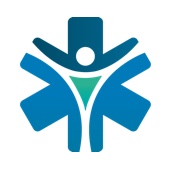FDA approves Bristol Myers Squibb’s Breyanzi

The FDA granted approval to a new therapy from Bristol Myers Squibb (BMS) for lymphoma. The FDA gave approval to lisocabtagene maraleucel, as a treatment for non-Hodgkin lymphoma. BMS will promote their therapy under the name Breyanzi.
Breyanzi is a chimeric antigen receptor T cell therapy (CAR T) therapy. Clinicians take T cells from the patient and then engineer them with a gene that targets CD19, a protein on the cancer cells. The clinical team inserts the cells back into the patient.
The FDA evaluated Breyanzi on clinical trial data that included more than 250 adults whose large B-cell lymphoma did not respond to treatment or had relapsed. The FDA indicated that the response rate to the treatment was 54%.
Regulators requires BMS to design a plan to inform clinicians and patients about the risks of the therapy, and to mitigate those risks. Healthcare facilities must obtain a certification in order to use the treatment.
The agency indicated that all staff must receive training on Breyanzi. Moreover, the company will need to do another clinical trial to assess patient outcomes after administration of Breyanzi.
Breyanzi is a cell therapy given clinicians use the patient’s immune cells. The FDA recognizes it as a gene therapy as well due to the gene component in the therapy. Breyanzi is distinctive in another way: it’s a regenerative medicine.
The FDA gave a designation to Breyanzi as a regenerative medicine advanced therapy (RMAT). The 21st Century Cures Act created this new regulatory category.
The RMAT provision of the act enhances the potential and discovery of regenerative medicine therapies. Breyanzi has become the first treatment to gain approval via the RMAT designation.
Our Editorial Note: Contact us if you would like to learn more about regenerative medicine and how it may help patients with Covid-19 and other medical conditions.
MedAdvisor
info@medadvisor.co
